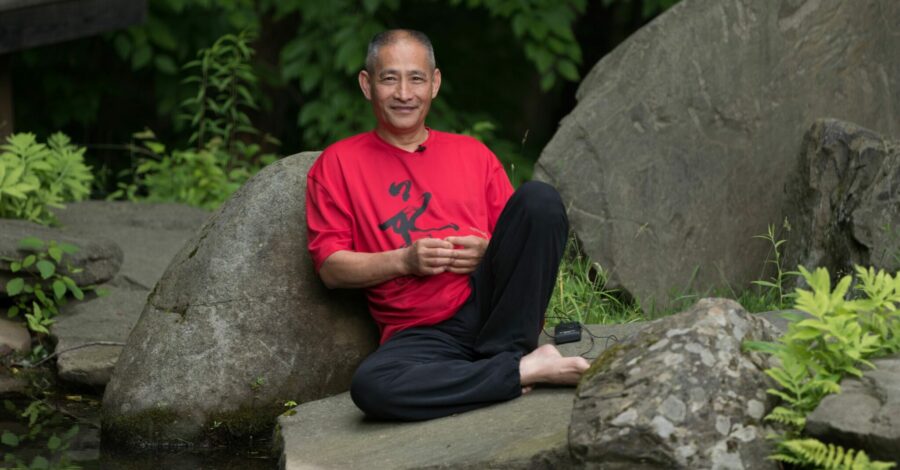
Seeing at a Higher Level: The Heart and Small Intestine
Traditional Chinese medicine (TCM) is the by-product of deep meditative spiritual journeys. Through energy practice, ancient practitioners were able to activate their inner vision to observe the invisible world, including the energetic functions of the body’s organs. This allowed them to see the body’s functions and connections to the five major elements—Wood, Fire, Earth, Metal and Water—and experience the oneness of the Universe. They organized these observations into the Five Element Consciousness Framework.
Qigong masters also had the ability to see interrelationships from a higher dimension; they could see how things that appear unconnected in this dimension are, in fact, connected in a higher one. For instance, the Heart shares a relationship with the Small Intestine. These organ systems have no physical connections or proximity. How can they be related? These relationships don’t make sense when we see them from the third dimension. But, if we move to a higher, or fourth, dimension, these relationships become understandable.
Energy masters recognized the special functions of the Heart as well as the unique digestive capabilities of the Small Intestine. While one of the Heart’s physical functions is to pump blood, its deepest function controls all mental activity, memory, feelings, sleep, as well as the psychic and conscious mind. The Heart’s primary function is to be joyful and peaceful, and connect to the unconditional love of the Universe.
The Heart houses the Shen, or Spirit, allowing us to connect to the limitless Tao. It also provides a direct link with Nature, which is how the Tao manifests gifts in our reality. TCM regards the Heart as a central processor. It serves as the gathering place where consciousness, mind, Qi, feelings, and emotions must go through. The Heart is at its healthiest when it is peaceful and practicing unconditional love.
From a functional level, the Small Intestine is a tough little organ. In some ways, it has an even stronger digestive capability than the Stomach. Its responsibility is to finish processing what the Stomach leaves behind. The Stomach’s function is not just for digesting food. It must also process emotions, including stress, as well as information. If you are over-stressed, experience excessive emotions on an ongoing basis, or take in too much information, it’s very possible the Stomach will get overwhelmed. When this happens, it will pass undigested elements to the Small Intestine. If the Small Intestine gets overloaded, you may experience Qi stagnation, which represents on the physical body as pain in the shoulder and shoulder blade area where its meridian runs.
Excerpted from Digesting the Universe: A Revolutionary Framework for Healthy Metabolism Function by Nan Lu with Ellen Schaplowsky.
Bring TCM Healing Into Your Life!
Start with Qi for Self-Care, where Grand Master Lu will uncover the link between sleep and inflammation: June 2.
Then join a 7-Day Journey to Heart Harmony with Grand Master Lu. Practice specific Heart-centered Qigong practices to reconnect your inner world with Universal Qi, enjoy a creative eating style that’s based on your personal cravings, and be inspired by other program components: June 17-24.
Register for these events and more on www.grandmasternanlu.com.









